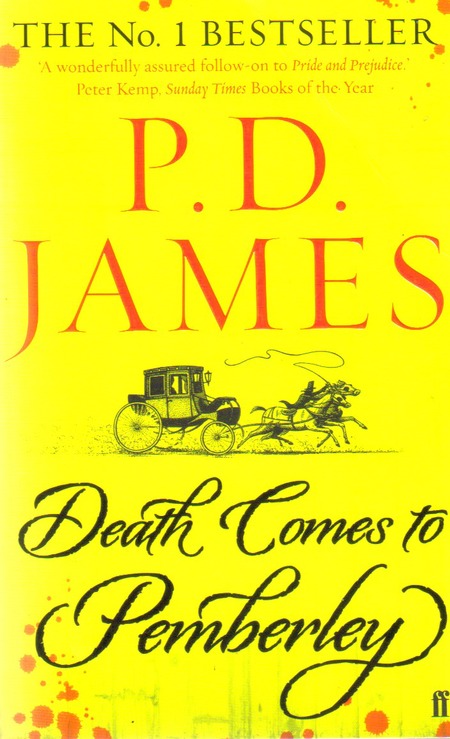
Death Comes to Pemberly
P.D. James
London, Faber, 2011, 324p
My second piece of meta fiction in as many book reviews, but unfortunately is one was somewhat less satisfactory than the last. Eager to stick to my rule about reading the original before watching the adaptation, I wanted to read Death Comes to Pemberly before the BBC version reached my screen this Christmas, aired over three consecutive evenings.
We are reunited with Janes Austen's infamous Bennett family, six years after the marriages of Darcy and Lizzie, and Jane and Bingley. The Darcys are planning the annual ball, supported by their abundant staff at Pemberly, when Lydia draws up in a carriage, declaring her husband has been murdered in the woods. Darcy sets off to find out what really happened, embroiling himself in a scandal that will dig up hidden secrets and and well-repressed feelings.
As I have noted before, some meta fiction simply makes you want to repeat the original. Unfortunately, this was not one of those sequels,: although I love the concept of a murder mystery containing all my old favourites, I felt James was unable to write the see characters as well as Jane Austen once did.
And now, seeing the adaptation on screen, it is clear that the concept it pure genius, mixing classic romance and drama with contemporary demand for crime fiction. In the BBC version, we are one again shown those characters we so greatly loved. Darcy is stubborn but noble, sometimes misguided in his actions but always acting with the best intentions. Lizzie is intelligent and observant, and proving to be a brilliant mother and wife. Lydia and Mrs Bennett (although not in the book) return, as hysterical and ridiculous as ever. Jane and Georgiana add a touch of feminine sensibility to the whole party, and Georgiana's suitors vie respectfully for her attention. And, to top it all off, Wickham brings drama and controversy to the peaceful existence of the Darcy home.
But the book didn't bring any of this delight for me. I found the plot confusing and convoluted, unnecessarily jumping between characters, time and settings. Often, James' use of unclear pronoun was frustrating; for example she'd start a paragraph talking about two male characters, and continue the paragraph using just "he", leaving the reader confused about who was being discussed. As such, the revelation towards the end gave me no thrill, feeling instead like a necessary process I had to go through just to make it to the end.
I found myself ploughing on, hoping for more, which I eventually found in the television adaptation. I think this might be the first time I've preferred the screen to the book! Hopefully, this novel will not put me off reading any P.D. James in the future.
No comments:
Post a Comment